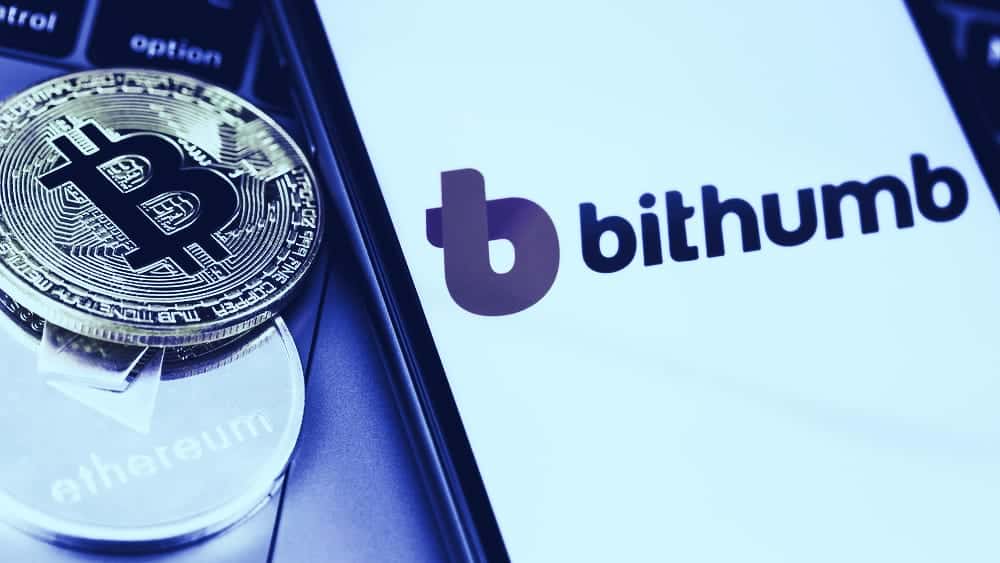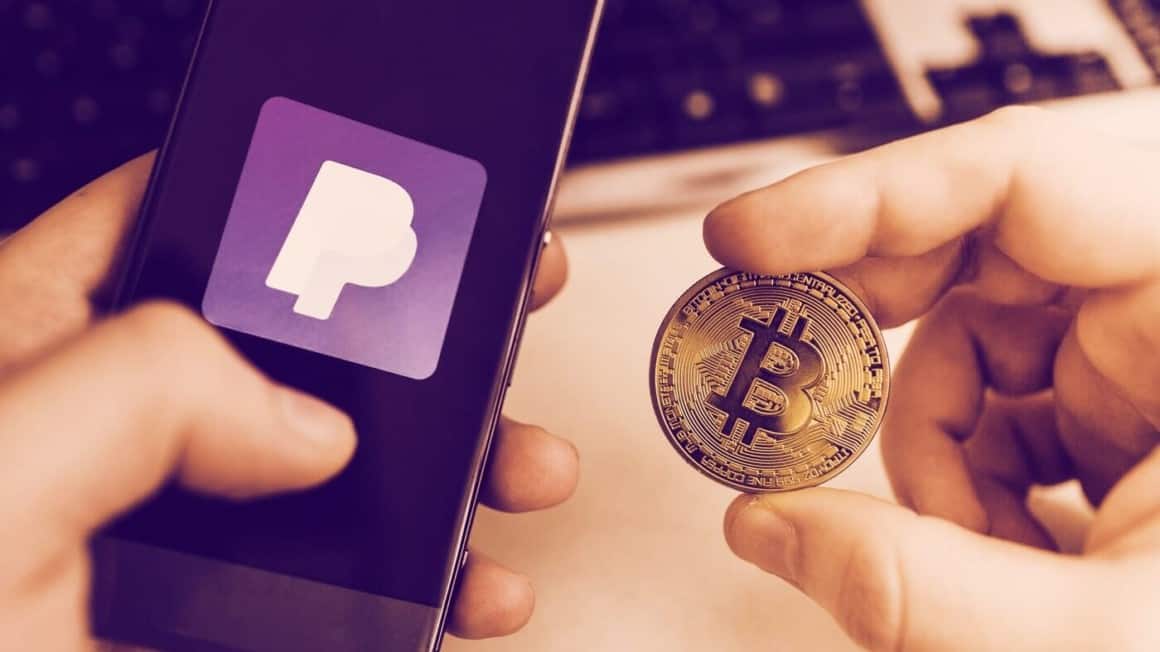In this issue
- Bithumb now for sale after fraud allegations
- Wealthsimple launches Canada’s first regulated cryptocurrency exchange
- BitFlyer integrates with PayPal to allow crypto buys
- In China: Ant Group launches platform for trade; Beijing, Anhui and Hunan now part of special free trade zones
- Funding spotlight: Fintech in Singapore
From the Editor’s Desk
Dear Reader,
What’s happening in the world of blockchain? You. Or more specifically: providing the access for you to buy cryptocurrencies, and diversify your portfolio. That’s what is moving the needle this past week as we connect the dots in this week’s Current Forkast.
From South Korea to Canada, Europe to China — platforms that make it easier for customers to engage in transactions and transfer of payments is trending. Bithumb, South Korea’s largest crypto exchange, is a great example of how a nation of early adopters of crypto has created a lucrative market of mass retail investors. It is reportedly for sale to the tune of up to US$600 million dollars — despite currently being under investigation for fraud. As a buyer, you could work with regulators to clean it up, and potentially end up with very healthy business. In Canada, federal and provincial regulators have given their blessing: Canadians now have access to the cryptocurrency markets via Wealthsimple. PayPal is doing the same in Europe via a partner. The question is: will it move you? It boils down to one thing. How comfortable are you with the current state of monetary affairs? Do you think there’s value in diversifying into cryptocurrencies and digital assets?
How easy it is for you, to engage and trust platforms with your money will be critical to growing the industry and critical to growing overall wealth in the market. When liquidity matters; the more access points, the better. The key is to ensure that both regulators and exchanges alike engage in best practices that will ultimately serve you best. In you, they share a common interest.
Until the next time,
Angie Lau,
Founder and Editor-in-Chief
1. Bithumb up for sale during fraud probe

By the numbers: Bithumb — over 5,000% increase in Google search volume.
Bithumb, South Korea’s largest crypto exchange, is battling ongoing fraud investigations and is reportedly now up for sale, with unknown buyers said to be issuing letters of intent at a price range between US$430 to $600 million. Bithumb is currently under investigation by the Seoul Metropolitan police after two raids on the company’s Gangnam headquarters this month following fraud allegations.
- The police were searching for evidence of foul play on the BXA token, Blockchain Exchange Alliance’s fundraiser on Bithumb for a potential 2018 acquisition.
- A presale generated US$24 million, but Bithumb did not list the BXA token and the acquisition fell through, leaving investors to bear the full loss.
Forkast.Insights | What does it mean?
An exchange being sold for nearly half a billion dollars to an anonymous buyer in a market that is increasingly coming under the keen eye of regulators? It seems like a recipe for disaster.
South Koreans are enthusiastic cryptocurrency investors. According to an Arirang Daily News survey from 2019, Koreans between age 25 and 64 held an average of US$6,000 each in cryptocurrency, and the South Korean won captured a third of the world’s crypto trade volume in 2017, behind the U.S. dollar and Japanese yen. But with this enthusiasm comes over-exposure: retail investors in the country have been prone to spectacular wipe outs. Cryptocurrency scams are common, particularly fake volume, errant data, and other adulturations of decision-making information. As such, Korean regulators are extra-mindful of fraud allegations. Reports of faked traffic and volume may result in a visit from the police.
If Crypto in Korea is to evolve to the status of institutional grade investment, a lot needs to change, and that starts with Bithumb. The exchange needs a heavy dose of transparency, and needs to ensure that it’s structurally compliant with best practices like proper third-party custody. Oh, and the buyer who is interested in the property needs to come forward and put their name on the transaction.
2. Wealthsimple debuts Canada’s first regulated crypto exchange

By the numbers: Wealthsimple — over 5,000% increase in Google search volume.
Canada’s first regulated crypto exchange Wealthsimple Crypto goes live to allow users in Canada to buy and sell cryptocurrency.
- On August 7, Wealthsimple Digital Assets Inc. got the nod from the Canadian Securities Administrators (CSA) to launch a cryptocurrency trading platform.
- Wealthsimple’s cryptocurrencies will be held by New York-based Gemini.
- Because of cheap hydropower in British Columbia and Quebec, Canada is a powerhouse in the Bitcoin mining sector.
- Founded in Toronto, Wealthsimple says it has 175,000 users in Canada, United States and U.K.
Forkast.Insights | What does it mean?
Launched in Canada in 2015, Wealthsimple has been an incredibly disruptive force in the Canadian retail investment industry as it counts nearly US$5 billion in assets under management and has closed US$100 million in funding. Bay Street — a colloquial term for Canada’s Wall Street — has felt their presence especially as banks look for ways to stem the bleeding from their former cash cows of retail investment management.
As a robo advisor — a digital platform that allows for money to be invested on auto-pilot — Wealthsimple is now looking to do the same for cryptocurrency in Canada with an easy to use, regulated platform. This is in almost total contrast to Korea’s Bithumb, which has been at odds with regulators and now has an (anonymous) buyer in the wings. Serious money gravitates to regulated platforms, and Wealthsimple has its eyes on the prize.
Regulators are keenly aware of the risks of an unregulated crypto exchange, and don’t want another Quadriga CX moment. In January, the Canadian Securities Administrators (CSA), an umbrella organization of Canada’s provincial and territorial securities regulators, put out a notice that sought to delineate between exchanges that held crypto in custody (which would be under securities laws) and those that instantly deliver the tokens (of which the laws would not apply). This is in direct response to reports that all of the keys to Quadriga CX’s assets were personally controlled by its late founder Gerald Cotten. Custody arrangements, regulators argue, need to be conducted in a more professional manner than one person controlling the keys. Hence the need for securities laws.
A space to watch in 2021 will be more firms like Wealthsimple — challenger financial institutions that know how to work in the regulated financial world — entering the crypto exchange industry. Coinbase is making waves with its planned IPO and is proving this industry is becoming a regulated entity’s game.
3. BitFlyer enables crypto purchases via PayPal in Europe

By the numbers: bitFlyer — 1,400 % increase in Google search volume.
PayPal has integrated bitFlyer Europe, which will now allow PayPal users in Europe to deposit and purchase cryptocurrencies.
- “Thousands of bitFlyer users already use PayPal for fiat transactions. Now, PayPal users can purchase bitcoin and other cryptocurrencies in the same way too,” said bitFlyer Europe COO Andy Bryant.
- “Given that approximately a third of European e-commerce payments are being processed through PayPal, we are more than thrilled to provide users with a deposit method they know and rely upon,” said Jack Bastin, bitFlyer Europe’s business strategy manager. “The process to deposit through PayPal is entirely frictionless, secure and reliable, with users to be credited near to instantly.”
Forkast.Insights | What does it mean?
If a tree falls in a forest and no one hears it, does it make a sound?
Likewise, if PayPal, at the peak of its decline, adds support for crypto — should anybody care?
PayPal was once a dominant player in the payment space thanks to its tie-up with eBay. If you wanted to use eBay, you also needed to use PayPal. But with dozens of challenger banks emerging these days, PayPal no longer has the near-monopoly on Western P2P transfers it once enjoyed. In fact, in some markets, old-incumbent legacy banks saw an opportunity and disrupted PayPal right out of its own game. In Canada, for instance, Interac, which is owned by a consortium of the country’s biggest banks to provide debit cards launched an online P2P transfer service in the early 2010s which totally pushed PayPal out of the market. Even PayPal’s Venmo, which was a 2013 acquisition to stave off its decline, does a pittance in volume compared to the goliath that is Interac e-transfers.
Part of the enthusiasm to disrupt Paypal, is, in fact, hatred of PayPal. High fees and poor customer service are major turn-offs for many consumers. There are plenty of anti-PayPal blogs out there that encourage people to ditch the platform.
What exactly will PayPal adding support for crypto do? It’s not like there are a lack of options to purchase crypto at competitive rates and prices.
4. In China: Ant Group launches blockchain platform for cross-border trade; Beijing, Hunan and Anhui become latest free trade zones

Ant Group, the Alibaba subsidiary that owns AliPay, one of the most popular mobile payment apps in China, launched a blockchain-powered platform for cross-border trade ahead of its initial public offering (IPO) in October at both Hong Kong Stock Exchange and Shanghai Stock Exchange.
- Named Trusple — an amalgamation of “trust made simple” — the global trade and finance platform is powered by Ant Group’s one-stop blockchain service platform AntChain. Its flagship service is “open chain,” a hybrid of permissionless chain and premissioned chain, similar to the Blockchain Service Network’s Public Permissioned Blockchain as recently reported in Forkast.News.
- Trusple offers automatic settlements between buyers and sellers with low transaction costs and all trading orders traceable and documented on the blockchain.
Forkast.Insights | What does it mean?
Dealing with multiple currencies, customs jurisdictions, and consumer goods laws is always a pain for any business. This is partially why the E.U. exists: harmonization of rules and regulations lowers the cost of doing business, especially in a market that’s geographically spread out and speaks different languages.
But such harmonization hasn’t happened yet in China. In fact, the biggest trade corridors in the country, Hong Kong to the rest of China, still have completely different rules and regulations within key sectors like banking, customs and consumer goods.
While on one hand this is a huge burden and drives up counterparty risk — a bank in Hong Kong might be wary of financing a project in China given the murky rules — it’s also a fantastic use case for blockchain technology. Smart contracts could mean transaction settlement won’t be held up because of missing documents or shipments that one party alleges have not been received. This platform would effectively solve all of that by tearing down the paperwork barriers to trade. China knows this, which is why the Greater Bay Area (what the Hong Kong, Macau and Guangdong region is known as) with its $2 trillion economy is a focus point for blockchain technology pilots.

The Chinese government recently unveiled the master plans for three new free pilot free trade zones — Beijing, Hunan and Anhui. Beijing’s plan outlined the details of China’s new digital currency, DCEP. and the future development of fintech.
- According to China Global Television Network, the pilot free trade zones will cover nearly 120 square kilometers and consist of sectors that include technology, international business.
- For blockchain technology and digital yuan, a fintech center backed by the Digital Currency Research Institute, the research unit of the People’s Bank of China (PBOC) will be established in Beijing, according to the China (Beijing) Free Trade Pilot Zone General Plan. Beijing will also be the site of a digital currency trial zone and a digital finance system.
Forkast.Insights | What does it mean?
China seems to have as many free trade zones as cities these days, to the point where it’s something of a running joke. But the irony is, most of these free trade zones aren’t exactly free — they are still subject to regulatory burdens, capital controls and taxes. For instance, in an article by Merics, a survey conducted by the European Chamber of Commerce (EUCC) in June 2016, 83% of respondents stated they did not benefit from the opening of further sectors for foreign investment in the Shanghai Pilot Free Trade Zone. Foreign business people have all pointed out that there’s nothing really free about these zones except having the term in the name.
So why not try again? A free trade pilot zone is something different. This is an area where you can import technology into China without the regulatory burden to test it out and ensure that there’s a market fit before going through the long and arduous process of importing it into the country. China’s protectionism of its software and technology sectors has long been cited as an unfair trade practice, and this could be the first step in solving it.
For blockchain this would be a space where you could test the technology out in different verticals without worrying about the regulatory burden. If the technology works, a company can then later apply for regulatory approval. If there’s no market fit, then the effort has been saved.
Let’s watch this over the next year and see if these regions become hubs of innovation in this space. One obvious use case, in conjunction with BSN, would be zones where foreign blockchain technology could be put through its paces to see if it would work in China.
But of course, being China, this could also just be an initiative that exists only on paper. Time will tell.
5. Funding spotlight: Fintech in Singapore
Syfe — Series A, Singapore, US$18.6 million
Singaporean fintech startup Syfe, whose main products are a series of digital equity portfolios for consumers, announced it had closed a $18.6 million round this week. The funding round was led by Valar Ventures, the VC firm backed by Palantir and PayPal co-founder Peter Thiel. Other Valar Ventures investments during Q3 2020 include BlockFi and Point Card, both of which were designed to leverage financial capital for consumers. Syfe’s most recent investment portfolio is titled the Equity100, which boasted an average annual return of 15.5% with no minimum investment. Equity100 includes equities from Asia, the Americas and Europe
Forkast.Insights | What does it mean?
Robo traders have been a worldwide phenomenon, bringing managed funds to the masses with low fees by boosting accessibility, thanks to the sheer scalability of software. But right now it’s all a rich-world product. In emerging Asia, there’s not the same market share. With this funding round, Syfe is getting in on the ground level in these new markets. Given Valar Ventures’ other portfolio companies like TransferWise and Xero, the company has disruption in its crosshairs. Their next target likely is the retail investment industry.




